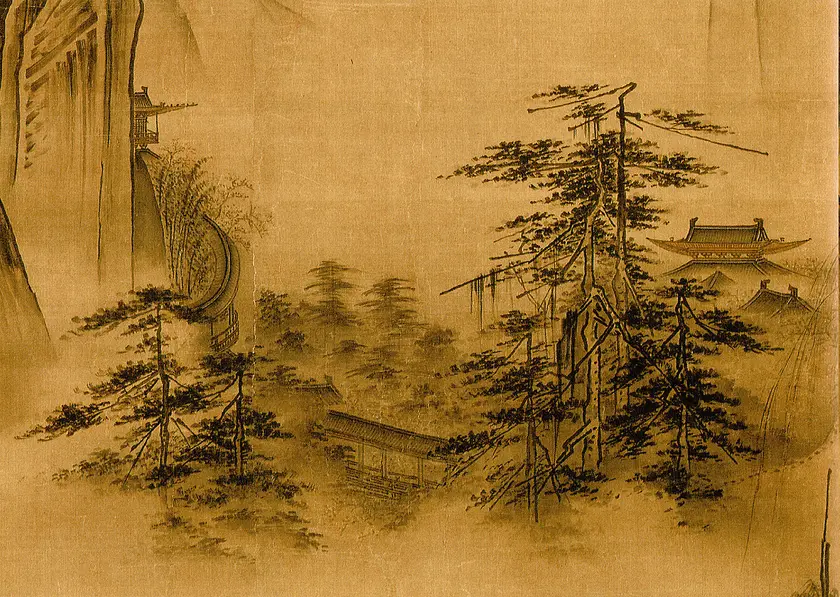We are uncertain and we need to be
 Walking on a mountain path in spring, Ma Yuan, 1190
Walking on a mountain path in spring, Ma Yuan, 1190
What does it mean to know something? 'I know that the next train will arrive at 3pm'. How do I know that? 'Because I looked up the train timetable on my phone'. Knowledge is built on top of other knowledge. If that's the case, there must be something fundamental that the rest of our ideas are built on. What are the different foundations of knowledge, and can we rely on them?
One approach is to constrain the problem, by forming a set of axiomatic beliefs that are unquestionable. Sometimes these can be explicit dogmatic ideas - 'This is the way it's always been and therefore it's right'. At other times it can be inexplicit, when you've never been consciously aware of the assumptions - 'I never even thought to question that'.
The other extreme is to take the sceptical approach - anything that has any chance at all of being false is dubious. Descartes powerfully made the case for this in his Meditations. He builds an argument for the strongest sceptical case he can conceive - our experience of the physical world and even our own thoughts could be being manipulated by an external agent 1. The possibility of living within a simulation is enough in this frame to doubt everything.
What do we have left in this sceptical worldview? Descartes identifies that the only thing we can take for certain is the Cogito - our own mental existence 2. The fact that I exist as a conscious being is continuously proved certain through my present thoughts.
The conclusion is significant - the only thing we can be absolutely certain of is the existence of our own consciousness.
One way to judge an idea is by its' results in the world. The hardcore sceptic who doubts everything is unable to get anything done. Before they can act they doubt if the inputs they are receiving are true, and doubt those thoughts in an endless loop. The unquestioning person acts, but encounters an unsolvable problem when one of their axiomatic beliefs comes to be false.
One way out of this uncertainty-action paradox is through the idea of coherentism. Think of a spiders web. I can remove any single strand without issue. But if I remove too many simultaneously, then the web will collapse. We can question anything, but not everything at once. Questioning too much at once or nothing at all both lead to bad outcomes.
A different interpretation comes through the lens of Eastern Philosophy. The Tao Te Ching covers the topic of nothingness - a wheel is useful because of the gap between the hub and the rim. "Presence gives things their value, but absence makes them work" 3. Scepticism highlights a void between our selves and everything else. Perhaps this vacuum of uncertainty is necessary. Like a wheel cannot function without emptiness, humans cannot function without space between their consciousness and the world. Without this uncertainty we'd have nothing to work on.
The movie 'The Matrix' is a recent exploration of this scenario
Cogito is Latin for thinking, but in a broad way that includes emotions and sensations that present in our consciousness
From the Tao Te Ching by Lao Tzu